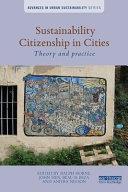
Transnational Citizenship and Migration
Trans-national America / Randolph Bourne -- Is multinational citizenship possible? / Raymond Aaron -- Citizenship and national identity : some reflections on the future of Europe / Jürgen Habermas -- Transnationalism : a new analytic framework for understanding migration / Nina Glick Schiller, Linda Basch and Cristina Blanc-Szanton -- Citizens, residents, and aliens in a changing world : political membership in the -- Global era / Seyla Benhabib -- Denationalizing citizenship / Linda Bosniak -- How immigration is changing citizenship : a comparative view / Christian Joppke -- Transnationalization in international migration : implications for the study of -- Citizenship and culture / Thomas Faist -- The poverty of postnationalism : citizenship, immigration, and the new Europe / Randall Hansen -- Should expatriates vote? / Claudio López-Guerra -- The legitimacy of the people / Sofia Näsström -- Transnational citizenship and the democratic state : modes of membership and -- Voting rights / David Owen -- Morphing the demos into the right shape : normative principles for enfranchising resident aliens and expatriate citizens / Rainer Bauböck -- The study of transnationalism : pitfalls and promise of an emergent research field / Alejandro Portes, Luis E. Guarnizo and Patricia Landolt -- Transnational migration : taking stock and future directions / Peggy Levitt -- Transnationalism in question / Roger Waldinger and David Fitzgerald -- Dual citizenship as a human right / Peter J. Spiro -- Fuzzing citizenship, nationalising political space : a framework for interpreting -- The Hungarian "status law" as a new form of kin-state policy in Central and Eastern Europe / Brigid Fowler -- Transborder membership politics in Germany and Korea / Rogers Brubaker and Jaeeun Kim
- ISBN 13 : 9781472428165
- ISBN 10 : 1472428161
- Judul : Transnational Citizenship and Migration
- Pengarang : Rainer Baubock,
- Kategori : Transnationalism
- Bahasa : en
- Tahun : 2017
- Halaman : 560
- Google Book : http://books.google.co.id/books?id=f7p2jwEACAAJ&dq=intitle:Citizenship&hl=&source=gbs_api
-
Ketersediaan :
This collection of mostly classic and some less well-known essays focuses on the historical question whether transnational citizenship is a genuinely new phenomenon and the normative question how it can be reconciled with principles of ...









